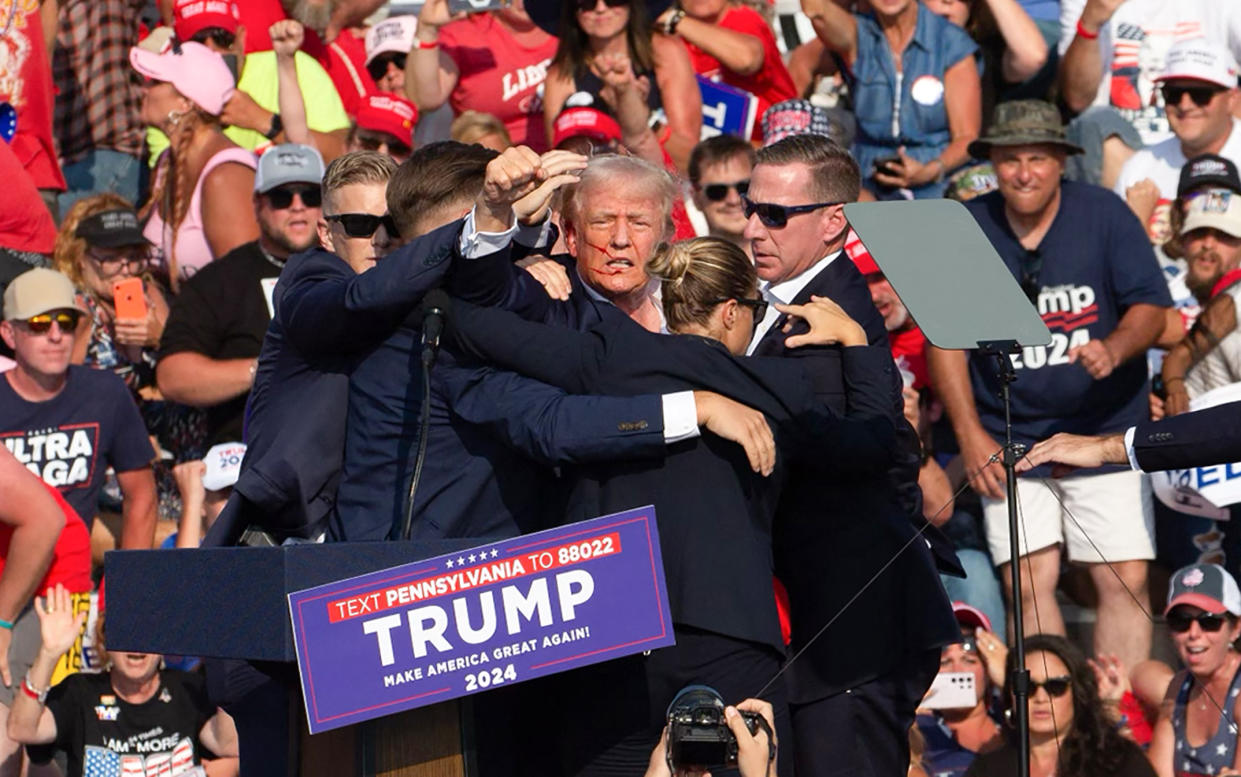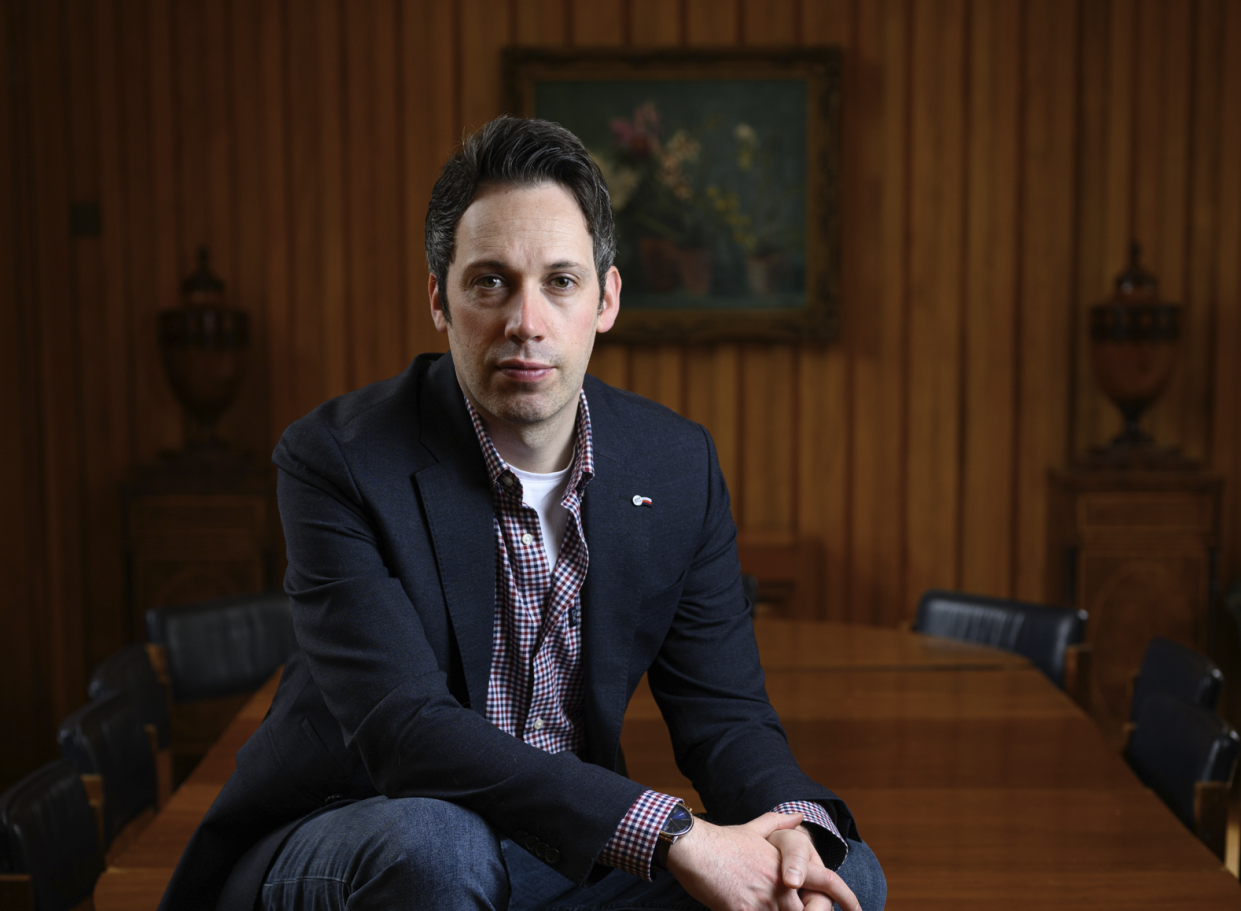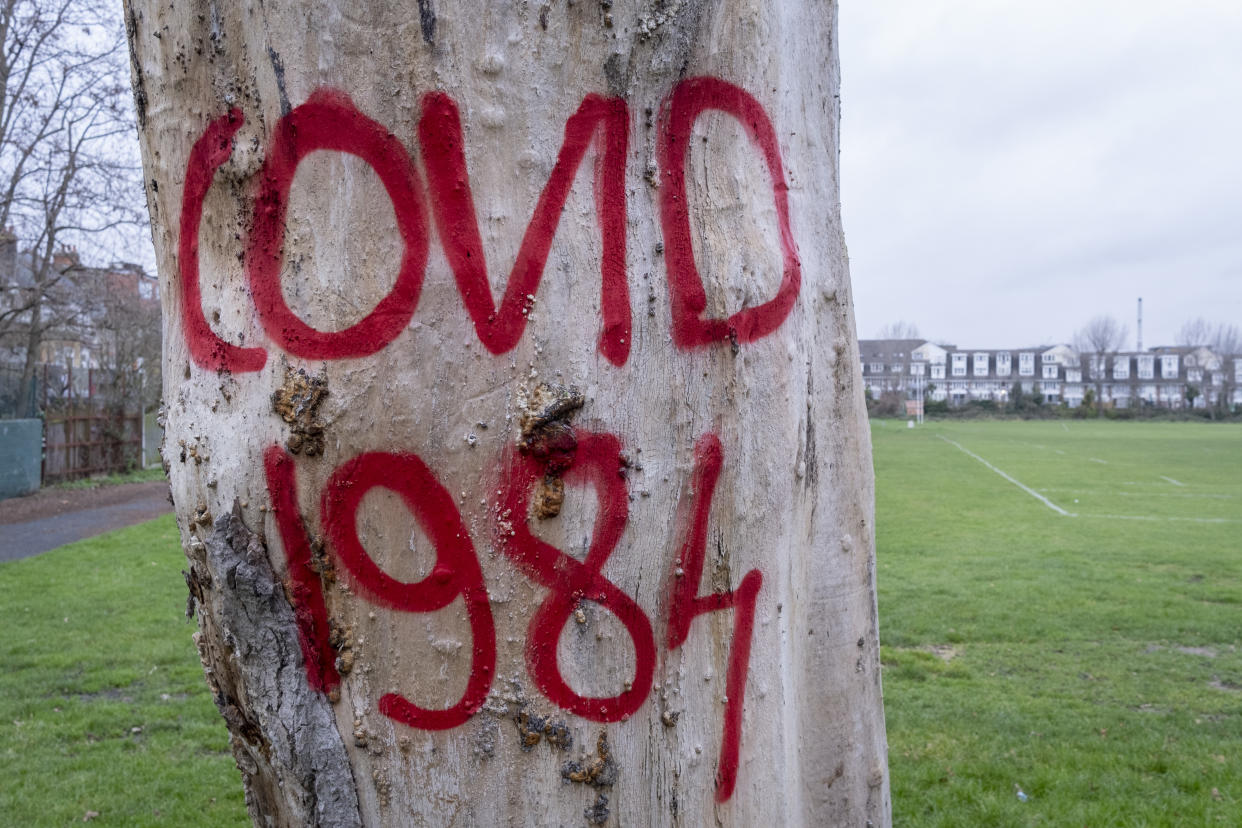What traits do conspiracy theorists have in common?

In the wake of the assassination attempt against Donald Trump, conspiracy theories around the attack rapidly began to swirl on social media, some spreading widely.
In the wake of the COVID pandemic, it might seem that conspiracy theories have become increasingly prevalent. There is, however, "scant" evidence to support concerns that there is an increase, according to research published in 2022 by the National Institutes of Health in the US - in part due to a lack of long-term data. But that doesn't mean, in the age of social media - those conspiratorial voices aren't amplified more than before.
In the UK, a poll in 2023 found that one in four of the country believed COVID was probably or definitely a hoax and a third of Brits believed that the cost-of-living crisis was a government plot to control the public.
So why do seemingly rational people suddenly find themselves believing bizarre and nonsensical ideas?
What motivates people to believe?
Professor Sander Van Linden, Cambridge University expert in conspiracy theories and disinformation, says that three key psychological motivations draw people into conspiracy theories.
"The first is the need to have answers in a world filled with chaos, to be ‘in the know’, to feel special, and separate yourself from the sheeple," he says.
But in a world where like-minded people can connect instantly online, the social aspect of conspiracy theories has become increasingly important, he says.

"Conspiracy theories offer people a chance to connect with like-minded others," he adds. “Conspiracy theorists often feel disenfranchised and marginalised from the mainstream so connecting online gives them a sense of purpose, belonging, and agency. It helps restore a sense of control when the world feels out of control.”
The last psychological motivation is that it’s simply easier to believe conspiracy theories than to face reality. "People worry about an uncertain future," he says. "It's much easier to believe that climate change or COVID-19 or a shooting is a hoax than to accept reality and all of its negative societal consequences."
What kind of person believes them?
According to research published by the American Psychological Association in 2023, people can be prone to believe in conspiracy theories due to a combination of personality traits and motivations.
These include relying strongly on their intuition, feeling a sense of antagonism and superiority toward others, and perceiving threats in their environment.
Lead author Shauna Bowes says they are "not all likely to be simple-minded, mentally unwell folks - a portrait which is routinely painted in popular culture," adding: “Instead, many turn to conspiracy theories to fulfil deprived motivational needs and make sense of distress and impairment.”
Professor Van Linden says the classic profile tends to be people who are:
more paranoid
more distrustful of official institutions and traditional media
more politically extreme
more narcissistic
likely to spend more time getting their news from social media
likely to score lower on tests of analytical or scientific thinking
Previous research has also shown that conspiracy theorists people are more likely to think that randomly moving shapes are moving due to conscious control - and that nonsensical statements are profound.
Bowes's research said that future research should be conducted with an awareness that conspiratorial thinking is complicated and that there are important and diverse variables that should be explored in the relations among conspiratorial thinking, motivation and personality to understand the overall psychology behind conspiratorial ideas.

How can conspiracy theories be stopped?
Professor Van Linden, the author of 'Foolproof: Why We Fall for Misinformation & How to Build Immunity', advocates "prebunking" conspiracy theories - or the building blocks of conspiracy theories - as soon as they appear online by debunking the ideas behind them.
He suggests that making people think about these theories can offer some form of "psychological immunity" against future theories - as the building blocks of different conspiracy theories are often very much the same.
"It turns out that most conspiracy theories contain predictable “signatures” which we can spot with a simple tool; CONSPIRE (C stands for “inCoherence”, O stands for “Overriding suspicion”, N stands for “Nefarious intent”, S stands for “Something must be wrong”, P stands for “Persecuted Victim”, I stands for “Immunity to Evidence”, and RE stands for “Re-interpreting randomness”)," he says.
“The basic point is that the storyline is always the same, irrespective of the actual evidence.”
Professor Van Linden says that conspiracy theorists "cast doubt on the mainstream explanation with some overriding sense of suspicion that somebody is plotting something in secret behind the scenes to execute a nefarious agenda".
Usually, this is done by re-interpreting random events into a causally connected story by disregarding inconsistencies and discounting any counter-evidence.
"For example, the idea that the assassination was staged by Trump himself - which wouldn’t make any sense given that they missed his brain by just a few inches."
Professor Van Linden hopes that by "prebunking" conspiracy theories, people can be armed with a new mindset that makes them immune to such ideas.
He says: "In some ways, the cure we're trying to elicit with prebunking is a sense of Actively-Open Minded Thinking (AOT) – this is a mindset where we keep an open mind, allow for uncertainty and multiple possibilities, follow the evidence, update our beliefs in light of new evidence, and always consider non-conspiratorial alternative explanations.
"You help train people to spot the signature of made-up conspiracy theories, which on average, should induce some scepticism in people."


